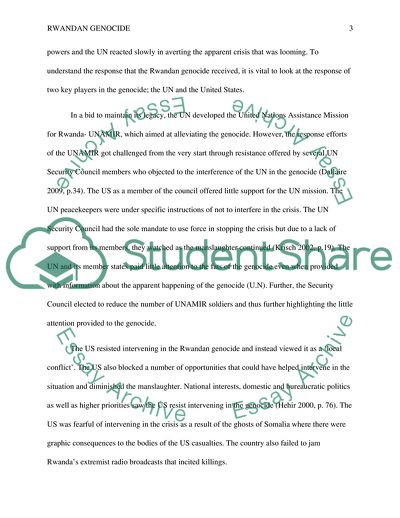Cite this document
(The Rwandan genocide: Principles of Solidarism and Culture-Relativism Case Study Example | Topics and Well Written Essays - 1500 words, n.d.)
The Rwandan genocide: Principles of Solidarism and Culture-Relativism Case Study Example | Topics and Well Written Essays - 1500 words. https://studentshare.org/history/1815604-case-study-project-on-rwandan-genocide-1994
The Rwandan genocide: Principles of Solidarism and Culture-Relativism Case Study Example | Topics and Well Written Essays - 1500 words. https://studentshare.org/history/1815604-case-study-project-on-rwandan-genocide-1994
(The Rwandan Genocide: Principles of Solidarism and Culture-Relativism Case Study Example | Topics and Well Written Essays - 1500 Words)
The Rwandan Genocide: Principles of Solidarism and Culture-Relativism Case Study Example | Topics and Well Written Essays - 1500 Words. https://studentshare.org/history/1815604-case-study-project-on-rwandan-genocide-1994.
The Rwandan Genocide: Principles of Solidarism and Culture-Relativism Case Study Example | Topics and Well Written Essays - 1500 Words. https://studentshare.org/history/1815604-case-study-project-on-rwandan-genocide-1994.
“The Rwandan Genocide: Principles of Solidarism and Culture-Relativism Case Study Example | Topics and Well Written Essays - 1500 Words”. https://studentshare.org/history/1815604-case-study-project-on-rwandan-genocide-1994.


